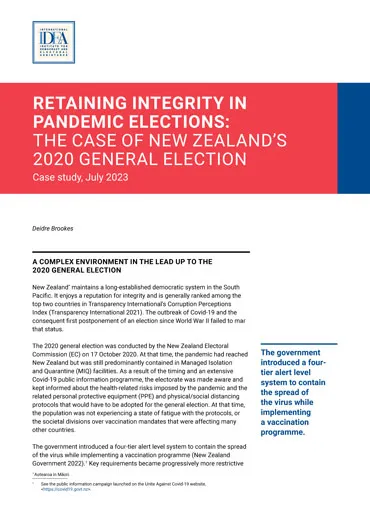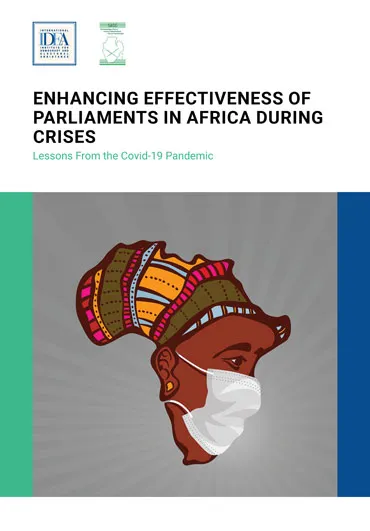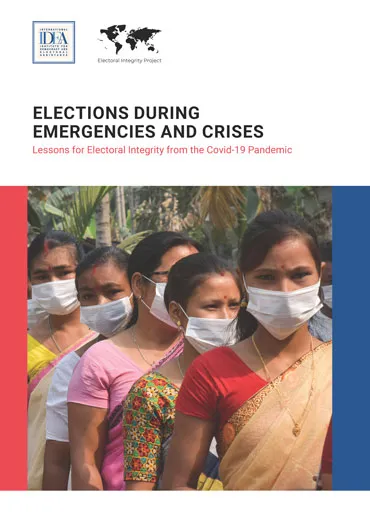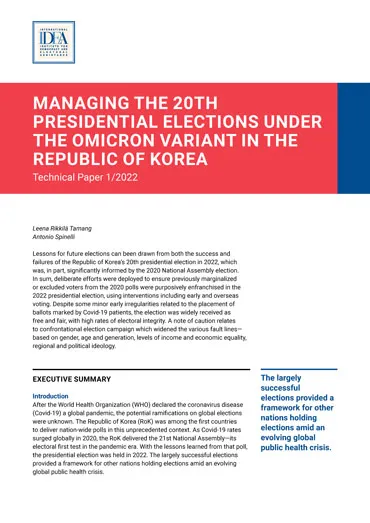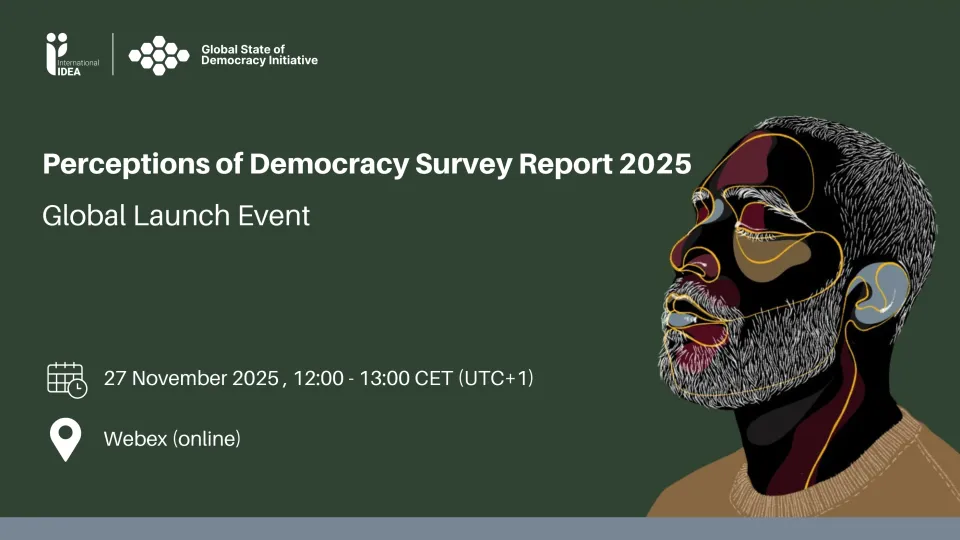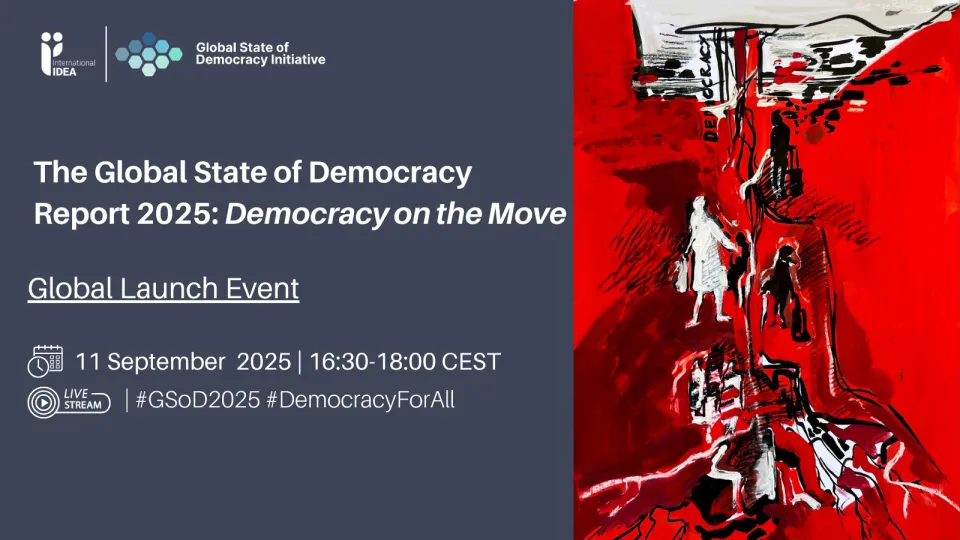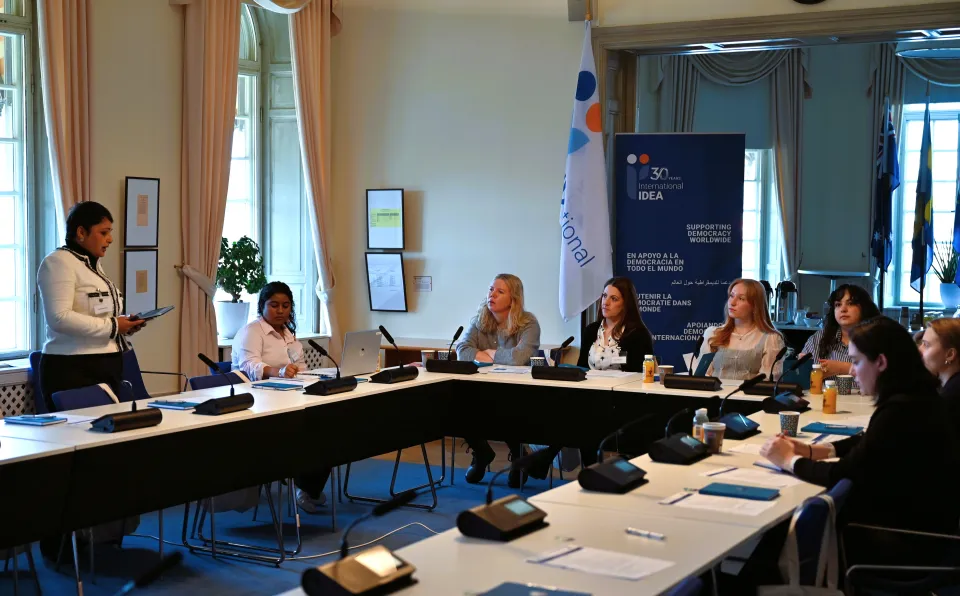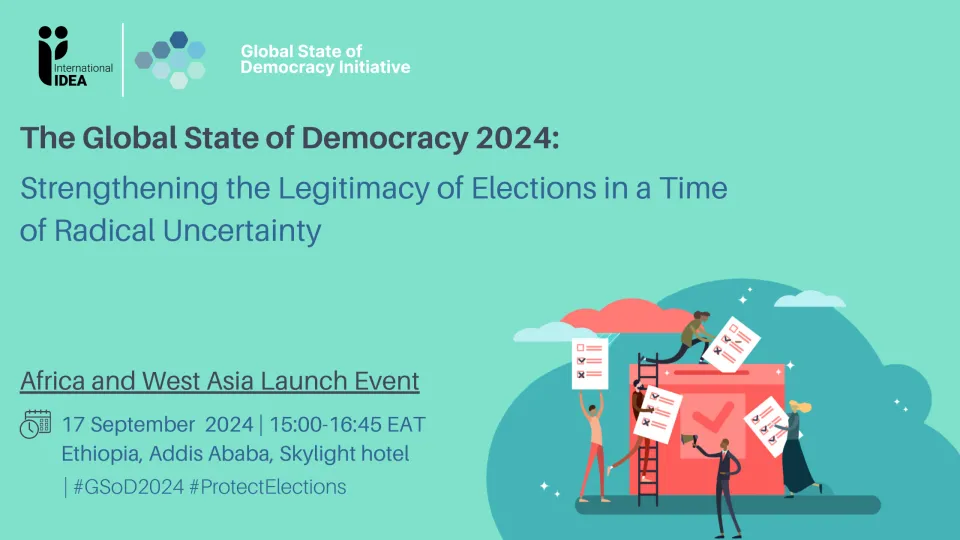Taking Stock of Regional Democratic Trends in Asia and the Pacific Before and During the COVID-19 Pandemic
This GSoD In Focus Special Brief provides an overview of the state of democracy in Asia and the Pacific at the end of 2019, prior to the outbreak of the pandemic, and assesses some of the preliminary impacts that the pandemic has had on democracy in the region in 2020.
Key fact and findings include:
- Prior to the outbreak of the COVID-19 pandemic, countries across Asia and the Pacific faced a range of democratic challenges. Chief among these were continuing political fragility, violent conflict, recurrent military interference in the political sphere, enduring hybridity, deepening autocratization, creeping ethnonationalism, advancing populist leadership, democratic backsliding, shrinking civic space, the spread of disinformation, and weakened checks and balances. The crisis conditions engendered by the pandemic risk further entrenching and/or intensifying the negative democratic trends observable in the region prior to the COVID-19 outbreak.
- Across the region, governments have been using the conditions created by the pandemic to expand executive power and restrict individual rights. Aspects of democratic practice that have been significantly impacted by anti-pandemic measures include the exercise of fundamental rights (notably freedom of assembly and free speech). Some countries have also seen deepened religious polarization and discrimination. Women, vulnerable groups, and ethnic and religious minorities have been disproportionately affected by the pandemic and discriminated against in the enforcement of lockdowns. There have been disruptions of electoral processes, increased state surveillance in some countries, and increased influence of the military. This is particularly concerning in new, fragile or backsliding democracies, which risk further eroding their already fragile democratic bases.
- As in other regions, however, the pandemic has also led to a range of innovations and changes in the way democratic actors, such as parliaments, political parties, electoral commissions, civil society organizations and courts, conduct their work. In a number of countries, for example, government ministries, electoral commissions, legislators, health officials and civil society have developed innovative new online tools for keeping the public informed about national efforts to combat the pandemic. And some legislatures are figuring out new ways to hold government to account in the absence of real-time parliamentary meetings.
- The consideration of political regime type in debates around ways of containing the pandemic also assumes particular relevance in Asia and the Pacific, a region that houses high-performing democracies, such as New Zealand and the Republic of Korea (South Korea), a mid-range performer (Taiwan), and also non-democratic regimes, such as China, Singapore and Viet Nam—all of which have, as of December 2020, among the lowest per capita deaths from COVID-19 in the world. While these countries have all so far managed to contain the virus with fewer fatalities than in the rest of the world, the authoritarian regimes have done so at a high human rights cost, whereas the democracies have done so while adhering to democratic principles, proving that the pandemic can effectively be fought through democratic means and does not necessarily require a trade off between public health and democracy.
- The massive disruption induced by the pandemic can be an unparalleled opportunity for democratic learning, change and renovation in the region. Strengthening democratic institutions and processes across the region needs to go hand in hand with curbing the pandemic. Rebuilding societies and economic structures in its aftermath will likewise require strong, sustainable and healthy democracies, capable of tackling the gargantuan challenges ahead.
The review of the state of democracy during the COVID-19 pandemic in 2020 uses qualitative analysis and data of events and trends in the region collected through International IDEA’s Global Monitor of COVID-19’s Impact on Democracy and Human Rights, an initiative co-funded by the European Union.
Details
Contents
1. Introduction
2. The democratic landscape in Asia and the Pacific prior to the COVID-19 pandemic
3. Democracy in Asia and the Pacific during the COVID-19 pandemic: Challenges and opportunities
Conclusion
References
Give us feedback
Do you have a question or feedback about this publication? Leave us your feedback, and we’ll get back to you
Send feedbackTaking Stock of Regional Democratic Trends in Asia and the Pacific Before and During the COVID-19 Pandemic

| Total views | 6533 |
|---|---|
| Downloads | 10 |
| Rating |
Give us feedback
Do you have a question or feedback about this publication? Leave us your feedback, and we’ll get back to you
Send feedback